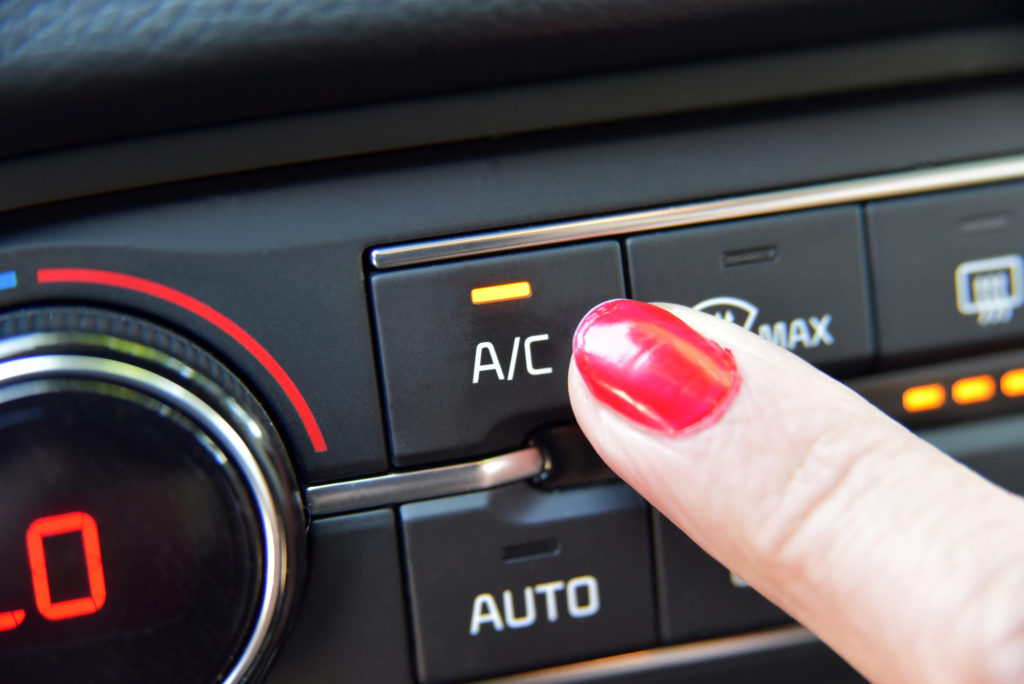Air Conditioning Bliss: Achieving an AC-Harmonious Ride
As we embark on the sweltering summer months, our cars become our sanctuaries from the scorching heat. But when the once-refreshing breeze from our AC starts emitting an unwelcome hissing sound, it becomes a symphony of discomfort and unease. Fret not, for this comprehensive guide will arm you with the knowledge and expertise to restore the tranquility of your car’s AC.

Image: rockhate.com
Diagnosing the Hiss: A Journey into the AC’s Inner Workings
The hissing sound in your car’s AC typically stems from refrigerant leaks, an essential component responsible for cooling the air. These leaks can occur due to various reasons, including:
• Corrosion: Moisture and road salt can take their toll on AC lines over time, leading to corrosion and subsequent refrigerant leaks.
• Seals and Gaskets: Deterioration or damage to seals and gaskets can compromise the AC system’s integrity, allowing refrigerant to escape.
• Compressor Failure: A malfunctioning compressor can disrupt the proper circulation of refrigerant, resulting in the dreaded hissing sound.
Untangling the Mystery: Uncovering the Sources of Refrigerant Leakage
To effectively address the hissing sound, it’s crucial to pinpoint the source of the refrigerant leak. A thorough inspection of the AC system is necessary, covering key areas such as:
• AC Lines: Carefully inspect all AC lines for signs of corrosion, particularly in regions exposed to moisture and salt. Corrosion often manifests as rust or discoloration.
• Seals and Gaskets: Examine seals and gaskets for any signs of cracking, hardening, or displacement. These compromised components can allow refrigerant to bypass their intended paths.
• Compressor: Listen attentively to the compressor as it operates. A faulty compressor may produce unusual noises, such as rattling or squealing, indicating potential issues.
Expert Advice: Empowering You with AC Problem-Solving Solutions
• Refrigerant Level Check: Regular monitoring of refrigerant levels is essential. Low refrigerant levels can exacerbate hissing sounds, necessitating a recharge or leak repair.
• DIY Leak Detection: Armed with a UV dye and flashlight, you can embark on a DIY leak detection mission. Add the dye to the AC system and inspect the components with the flashlight. Any leaks will reveal themselves as glowing areas under the black light.

Image: mycarmakesnoise.com
FAQs: Unraveling the Enigma of Hissing Car ACs
• Q: Can I fix the hissing sound myself?
A: While some leak repairs may be manageable as a DIY project, it’s generally recommended to seek the expertise of a qualified mechanic for AC repairs to ensure proper diagnosis and repairs.
• Q: How much does it cost to fix a hissing car AC?
A: The cost of AC repairs varies depending on the severity and location of the leak. Expect to shell out anywhere from a few hundred to over a thousand dollars for professional repairs.
• Q: Can I drive my car with a hissing AC?
A: Driving with a hissing AC is not advisable. Refrigerant leaks compromise the cooling system’s integrity, potentially leading to compressor damage or even engine overheating.
How To Fix Hissing Sound In Car Ac
Conclusion: Restoring AC Harmony, One Hissing Sound at a Time
Reclaiming a peaceful car ride sans hissing AC sounds is within reach. By carefully examining your AC system, implementing DIY detection techniques, and seeking professional help when necessary, you can restore your car’s AC to its former glory. Remember, a well-functioning AC not only enhances comfort but ensures a safe driving experience, especially during sweltering summer months.
Are you ready to experience AC bliss once more? Take action today and restore the harmony of your car’s cooling system. Your ears and your comfort will thank you for it!